|
In October, Pope Francis canonized five “Blessed” men and women of the Church, including Cardinal John Henry Newman, the Anglican convert “widely recognized as one of the greatest theologians of the 19th century.” Along with Cardinal Newman, four women were made saints, including three religious women and one laywoman. When I first heard the news on the car radio, the name “Cardinal Newman” sounded familiar, but I couldn’t remember why. I was also curious about who the women were – and why I hadn’t heard their names reported also! My passing interest grew into a promise to learn: 1. Where have I heard of John Henry Newman? and 2. Who were the four women canonized with him? The first question was easiest to answer. In addition to his famous conversion and subsequent tenure as the vicar of St. Mary the Virgin Church at Oxford University, John Henry Newman was a prolific writer. Newman’s essays and sermons even influenced the White Rose student group in Munich, which included Sophie and Hans Scholl, who were tried and executed after speaking out against the Nazi regime. These clues helped – but when I stumbled upon Cardinal Newman’s Wikipedia page, the answer hit home. If you have ever visited a secular college campus in the United States, Canada, or the United Kingdom with a Catholic Student Center – the odds are good that the center will be called a “Newman Center,” “Newman Club,” or “Newman House.” Newman Centers “get their name and their role from the cardinal who died in 1890 and emphasized that Catholic students who attend public universities must be given a place to gather to support and encourage one another in their faith.” This “Newman Connection” helped me understand why this saint is beloved in many English-speaking parts of the world – especially among students, young adults, and those of other Christian denominations. One mystery solved – four to go! At first, I was totally unfamiliar with the four newest women saints. My lack of familiarity may owe partially to the fact that these women are from four very different, non-English speaking parts of the world: Brazil, India, Italy, and Switzerland. The three religious women were Blessed Dulce Lopes Pontes, Mariam Thresia Chiramel Mankidiyan, and Blessed Josephine Vannini. The laywoman canonized was Blessed Marguerite Bays. In the Holy Mass homily, Pope Francis said “[These three religious women]… show us that the consecrated life is a journey of love at the existential peripheries of the world. Saint Marguerite Bays, on the other hand, was a seamstress; she speaks to us of the power of simple prayer, enduring patience and silent self-giving.” St. Marguerite Bays was a lay member of the Secular Franciscan Order in 19th Century Switzerland. Early in her life she dedicated herself to helping others, especially her parish, her family, and unemployed Swiss peasant farmers who were adversely affected by the mechanization of the of agricultural industry. Fittingly, one of the miracles attributed to Marguerite involved the case of a two-year-old who fell under the moving wheels of a tractor. “Her grandfather witnessed the accident unfolding and prayed to Marguerite... and the girl got up unharmed.” Marguerite experienced a miraculous healing in her own life from bowel cancer and lived to age 63. St. John Paul II beatified her in 1995. St. Giuseppina Vannini is the first Roman woman to be canonized in over 400 years. Raised an orphan in the shadow of St. Peter’s Basilica, she went on to found the Daughters of St. Camillus, after being rejected from the Daughters of Charity for poor health. She faced rejection and bureaucratic roadblocks to establishing her order, which now has 800 sisters working in 22 countries. Giuseppina was beatified by St. John Paul II in 1994. St. Mariam Thresia Chiramel Mankidiyan also founded a religious order, the Congregation of the Holy Family, with the mission of caring for poor families in India. A mystic, she was born Thresia Chiramel Mankidiyan (“Theria” for Teresa of Avila). Pope John Paul II named Mariam as Venerable in 1999. St. Dulce Lopes Pontes is well known in the Western Hemisphere, often referred to as “Brazil’s Mother Theresa,” due to her birth into an upper-middle class family and her subsequent devotion to the poor. She founded the first Catholic workers’ organization in the state of Bahia, and she also “launched several initiatives including a health clinic for impoverished workers, a school for working families, a hospital, an orphanage and numerous care centers for the elderly and disabled.” At the time of her death in 1992, Sister Dulce had been nominated for the Nobel Peace Prize. In Pope Francis’ Holy Mass homily, he discussed the journey of faith as the way of those who cry out, walk and give thanks. This is a dynamic challenge, taken up by all five of our new saints – many who paired their rich mystic experiences with bold, resourceful action to affect change. St. Dulce Lopes Pontes, St. Mariam Thresia Chiramel Mankidiyan, St. Josephine Vannini, St. Marguerite Bays, and St. John Henry Newman certainly inspire me to do likewise.
0 Comments
In this world of artificial connection, can we still discover and grasp an authentic connection within ourselves to our Triune God? Many of us are technologically connected throughout the day and into the evening, whether it be through social media, texting, e-mails, the Internet, or general screen time. In a normal day-to-day setting, take a moment to reflect on how often you have face-to-face time to truly speak with and connect with your family, peers, friends, or co-workers. In those moments, are you able to reach beyond a superficial level of connection? Oftentimes amidst the busyness of our lives, schedules, commutes, and responsibilities, we find it difficult to truly maintain a connected relationship with others that goes beyond our phone, tablet, or computer screen. If maintaining this human connection has become difficult, how much more difficult is it for us to find those moments of quiet, internal spiritual connection to God? Our society and technology have fooled us into believing that all of this quick and easy access has made it easier than ever to keep in touch with those that mean the most to us. And yet oftentimes it has instead succeeded in building walls of electronic screens not only between us and others but, more importantly, between us and God. There are many things that resonate between our physical, or exterior, and our spiritual, or interior, lives. What is the equivalent “screen time” in our spiritual lives? Where are we holding onto surface-level connections instead of digging deeper into our relationship with God and growing in our spiritual life? Are we holding onto a barrier that is holding us back from maturing in our spiritual development? Just as we grow, develop, and mature in our physical lives, we are called to do so in our spiritual lives as well. Today, we celebrate and commemorate the life of Saint Teresa of Jesus, also known as Saint Teresa of Avila. Saint Teresa was a spiritual writer and mystic. She is one of four females to be named a Doctor of the Church, meaning that her spiritual writings have been given special authority. Her teachings, writings, and life can point us in the direction of growing in our interior life and thus growing in our faith and connection to God. In Saint Teresa’s spiritual writing The Interior Castle, she likens the stages of growth and development of our interior life to seven mansions within a castle. Saint Teresa describes the dwelling of God within us as residing in the seventh mansion of our castle. Through the growth and development of our spiritual life, our soul is to journey through the mansions to find its rest within the seventh, the kingdom of God. The first step in entering the castle is prayer. Saint Teresa teaches that, “Souls without prayer are like people whose bodies and limbs are paralyzed.” Let’s take a moment to reflect on our prayer life. Are there any “electronic screens” standing in the way of deepening our relationship and our conversations with our Creator? Are we connecting to God in our prayer life as if we are updating our Facebook status or posting our latest photo to Instagram? Or are we really striving to power down the screens of distraction in our life to speak with God AND listen to Him? Let us turn to the life of Saint Teresa as an example and inspiration for our desire to develop the maturity of our soul. The next time you enter into prayer, “Go to your inner room, close the door, and pray to your Father in secret.” (Matthew 6:6) If we look at these words of Scripture through the lens of Saint Teresa’s teachings, we must pass the walls of our castle, our body, in order to enter our inner room. Allow yourself a few moments to quiet and calm the body in order to turn your focus to God. Take time to power down the screen. Close your eyes and breathe deeply. The Divine Physician has created our body in such a way that by slowing and deepening our breath rate, our heart rate and blood pressure decreases, our muscles relax, and the racing thoughts of our mind slow so that we can focus on one Triune thing, our God. In this state of quiet and calm, invite the Holy Spirit into this moment and seek a true, contemplative connection in prayer with your Creator. I would like to close with a prayer often attributed to Saint Teresa of Avila: “May today there be peace within. May you trust God that you are exactly where you are meant to be. May you not forget the infinite possibilities that are born of faith. May you use those gifts that you have received, and pass on the love that has been given to you. May you be content knowing you are a child of God. Let this presence settle into your bones, and allow your soul the freedom to sing, dance, praise and love. It is there for each and every one of us.” Saint Teresa of Avila, pray for us! Ah, summer. The sun is shining. The beach is calling. There’s much more time for leisure (which is so important! Read Pieper if you need convincing.). For me, more leisure means more time to read and write and consequently, more time to explore the beauty of our faith. Here’s what I’m reading this summer:
2. Four Quartets by T.S. Eliot Speaking of works I will revisit for the rest of my life, I read Four Quartets multiple times a year, including every summer. I mentioned this genius work in a previous blog, and must bring it up again. This four-part poem from Eliot isn’t the lightest read, but there are plenty of commentaries out there for guidance. I recommend Dove Descending: A Journey into T.S. Eliot’s Four Quartets. Written after his conversion, Four Quartets can be read as a response to Eliot’s earlier, more famous and more despondent poem, The Wasteland. Whereas The Wasteland wonders whether a life of harmony and wholeness is possible in the modern world, The Four Quartets presents God’s plan for salvation history as not only possible, but ideal. And let me tell you, Eliot’s incredible verse is a spiritual game-changer. 3. Spiritual Writings by Flannery O’Connor, edited by Robert Ellsberg Flannery O’Connor never wrote formal ‘spiritual writings’; rather, this is a collection of her letters and other works that touch on spiritual topics. Her writing style is sharp and punchy and will have you on the edge of your seat. The collection includes one of Flannery’s more famous letters wherein she recounts her argument with a writer about the True Presence of Christ in the Eucharist. Flannery says to the writer who has just asserted that the Eucharist is mere symbol, “Well, if it's a symbol, to hell with it.” If you like literature of the American South, snappy comebacks, and/or want to join the Catholic hipster scene, Flan is your girl. 4. 40 Years with a Saint: Blessed Alvaro del Portillo on Saint Josemariá Escrivá by Cesare Cavalleri Saint Josemariá is a twentieth century saint who founded Opus Dei, a personal prelature in the Catholic Church that focuses on finding and serving God through everyday life. Opus Dei runs the Catholic Information Center in Washington D.C., where many young professionals like myself attend talks and social gatherings. This book is the thoughts of one saint on another saint. That’s pretty awesome. There are also many awesome YouTube videos with footage of St. Josemariá which I encourage you to watch; it’s wild that we live in an age where we have footage of saints in action! 5. Pier Giorgio Frassati: A Hero for Our Times by Cristina Siccardi Modern Catholic lore is full of epic stories about Blessed Pier Giorgio Frassati. One of my favorites is that he used to go to the local pool hall and hustle the other players. When he won, he didn’t take his opponents’ money, but instead had them spend an hour with the Blessed Sacrament. I picked up this book to verify these stories and to learn more about the man who proclaimed, "Verso l ‘Alto!" (“To the heights!”) It’s not disappointing. 6. Meeting Jesus Christ: Meditations on the Word by Msgr. J Brian Bransfield As Catholics, we tend to get a bad reputation for our lack of engagement with Scripture (even though every Sunday Mass is flooded with passages and references). This book helps us dive a bit deeper both familiar and more obscure Gospel passages. If you want to engage more with Scripture this summer, this book is a great place to start. 7. Laurus by Eugene Vodolazkin Everyone loves a good Russian novel and there are many (think Anna Karenina, War and Peace, Crime and Punishment, The Brothers Karamazov etc.). Laurus is a contemporary Russian novel about holiness. Laurus loses the love of his life when she dies giving birth, and the rest of the story is about how he comes to terms with his suffering and ultimately God. The book is extraordinary and the translation is superb. It’s also a great work of historical fiction, illustrating life in Russian during the Middle Ages. Comment below with what you are reading this summer! And don’t forget to check out the many Catholic Apostolate Center eBooks by clicking here! I am out of practice. Although I spend what feels like hours and hours each week writing papers, I am out of the habit of writing for pleasure. As a seminarian in my first years of theology studies, I am not yet crafting homilies. What was once an enjoyable and relatively easy undertaking now feels rather rigid and forced. Our spiritual lives also ebb and flow. At times, perhaps our prayer life or growth in virtue seems enjoyable and relatively easy. At other points, it can feel rigid and forced. As we enter into Holy Week, I am reminded of the continuing conversion that must happen in my own life. What has the task of this now-past Lenten journey taught me? It has taught me that nothing in the spiritual life should be forced. Discipline is important, and hopefully the forty days of Lent have strengthened each of us in our resolve to turn to the Lord in prayer during the course of each day. Saint Elizabeth Ann Seton, the first American-born saint, wrote, “We must pray without ceasing, in every occurrence and employment of our lives—that prayer which is rather a habit of lifting up the heart to God as in a constant communication with Him.” Hopefully this season of preparation has strengthened our habit of prayer in the way that Saint Elizabeth spoke of. When we pause to recognize the stirrings in our heart that come from a genuine encounter with the Lord in times of prayer, it can often be surprising to take stock of the promptings of the Holy Spirit. “Here is the true gift of the Father,” said our Holy Father Pope Francis. “Man knocks with prayer at the door of God to ask for grace. And he, who is Father, gives me that and more: a gift, the Holy Spirit.… We must learn to knock on the heart of God! And we learn to do it courageously.” When we are bold and courageous in our prayer, we draw even closer to God—Father, Son, and Holy Spirit. As we look ahead to the remainder of Holy Week, how can we enter more fully into the great mysteries and events that the Church commemorates this week? First and foremost, we should not forget to pray! The time of preparation for Easter is still upon us; we pray with a real and sincere Christian hope. “To come to know God—the true God—means to receive hope,” wrote Pope Emeritus Benedict XVI in Spe Salvi. We should pray with fervent hope to come to know the living and true God during these final days of preparation for Easter. For more Lenten and Easter resources, please click here. For more resources on prayer, please click here. “[Jesus] saw a man named Matthew sitting at the customs post. He said to him, ‘Follow me.’ And he got up and followed him (Matt 9:9).” St. Matthew (a tax collector, dishonest and greedy) accomplishes what usually seems like the most difficult task: simply following Jesus. The calling of St. Matthew reminds us that authentic Christian life is quite simple: Get up and follow Jesus. This could also be summed up in the words of St. Faustina, to whom Jesus revealed His message of Divine Mercy, “Jesus, I trust in You.” As we all know, the Christian life is not always that simple. There is something to be said about why stories of the saints and stories of converts to the Faith are dramas of the highest caliber. I think we can learn a lot about the drama of the Christian life through the works of T.S. Eliot, one of the twentieth century’s major poets. Eliot converted to Christianity in 1927 when he was 39 years of age. He became more fervent in his faith until his death in 1965. Eliot’s poetry is often divided by his conversion. Before his conversion, his notable works are “The Love Song of J. Alfred Prufrock” (1915), The Waste Land (1922), and “The Hollow Men” (1925). After his conversion, he is known for “Ash Wednesday” (1930) and Four Quartets (1943). Four Quartets is often considered to be one of the most important works of the twentieth century; it led to Eliot’s winning of the Nobel Prize for Literature, and in my opinion, is the most incredible summation of the Christian life in poetry—only surpassed by Dante’s Divine Comedy (1320). Without revealing too much about the poem (I hope that you will read it here!), I wish to share with you a relevant section. Eliot writes about the saints whom we should emulate, and how difficult that is: And what there is to conquer By strength and submission, has already been discovered Once or twice, or several times, by men whom one cannot hope To emulate - but there is no competition - There is only the fight to recover what has been lost And found and lost again and again: and now, under conditions That seem unpropitious. But perhaps neither gain nor loss. For us, there is only the trying. The rest is not our business. This section can be found in the second of the Four Quartets, “East Coker,” in the final section of the poem, section five. On one level, Eliot is speaking about writing, and the timeless struggle to produce great literature. He is probably referring to Shakespeare, Dante, and other great authors in regards to emulation. On another level, Eliot is commenting on the Christian life and emulating the saints that have come before us. Eliot speaks of the struggle of living an authentic Christian life— “There is only the fight to recover what has been lost / And found and lost again and again.” But he sums up the task of Christian life quite simply, like the Scripture passage in the calling of St. Matthew: “For us, there is only the trying. The rest is not our business.” We shouldn’t let ourselves be consumed with all the exterior drama and complications of everyday life (though these things are important to function effectively in the world), but with the simplicity of Christian life. Get up and follow Jesus, and don’t ever stop trying. And read some TS Eliot in your spare time! Question for Reflection: What prevents you from simply getting up and following Jesus? Not long ago, I sat listening to the words of my university’s honored commencement speaker, Peggy Noonan, who entreated us to do something after we graduated that day: “You must not stop reading books. That’s all. If you seek a happy and interesting life, one of depth, meaning and accomplishment, you must read books.” I thought that to be a simple message—but refreshingly concrete and unique. As she pointed out, to get to graduation day my peers and I had read a number of books. Most were works assigned as required reading for a course rather than for leisure. Continuing to read after a life in school would benefit us, Noonan said, as we moved through life to new places, with new people, and into new positions.
As a Catholic, I took Ms. Noonan’s advice as an opportunity to seriously take up spiritual reading. I previously had taken advantage of my Catholic high school’s library to some degree, but I often had to let spiritual reading take second place behind the demands of other commitments. This continued in college with the much larger university library collections. There seemed to be no time to read for the sake of reading, spiritual or otherwise. While I may not have had much choice at the time, I know that when the faithful disregard the great literary works of Catholicism, we do ourselves a great disservice. With its full and ever-expanding breadth of writings, the Church encourages the faithful to enrich themselves through the works of popes, saints, and the Magisterium, along with theologians, mystics, clergy, and religious (see CCC 133). These can offer many insightful perspectives on the Faith, but they cannot replace reading the Bible! As St. Jerome remarked, “Ignorance of Scripture is ignorance of Christ!” Similarly, the Second Vatican Council affirmed the Word of God as “food for the soul, the pure and everlasting source of spiritual life.” (Dei Verbum, 21) We may spend years studying books for school and for professional development—how much more should we pore over the Word of God “to build you up and give you your heritage among all those who are sanctified”? We nourish ourselves with physical food multiple times a day, shouldn’t we do the same with spiritual nourishment? When I worked in a Catholic bookstore, my boss shared this insight from St. John Bosco: “Only God knows the good that can come about by reading one good Catholic book.” Customers might have wandered in to buy a rosary or Catholic memorabilia, but many times I noticed them stop in front of a display of books on family life, spirituality, or healing prayers. As I assisted them with their selections, many would share their favorite devotions or ask for guidance in selecting a title. The customers were seeking writings by those whose experiences they could relate to—authors whose work would speak to our customers just as Sacred Scripture speaks to each of us and motivates us to seek and undertake the will of God. On other occasions, customers would simply be looking for something new to deepen their spirituality and share what they learned with their family and friends. I have observed that the benefits of supporting Catholic bookstores extend in many ways: not only does it help a business to continue providing accessible, quality literature, but it also offers customers the chance to find something meaningful and wholesome that will be useful in subsequent questions, reflections, and experiences long after the first reading. Consider dusting off your Bible or picking up that Catholic book on your table. Spend a few moments and allow yourself to be touched by the author’s message and then share the experience with loved ones. Start a book club with friends and neighbors to discuss a spiritual work and apply it to your day to day life. The words of an approved source can galvanize, console, clarify, educate, or guide your spiritual formation. As Ms. Noonan reminded us, continual reading throughout our lives, especially of spiritual works, will give our lives greater depth and meaning. Start by picking up the book. Questions for Reflection: Is there a spiritual book or book from the Bible you’ve been meaning to read? How has a book or Scripture passage impacted your life? I had lived in Baltimore for only a few months when some friends came to town. They insisted we see the Inner Harbor, and so off we went, adventuring on foot. I’ll be very honest: having grown up in the suburbs of Philadelphia, I was still getting used to the number of individuals on the streets asking for money. My instincts always screamed: KEEP WALKING; DON’T MAKE EYE CONTACT; YOU HAVE NO MONEY TO GIVE. And usually by the time my inner voices settled down, I was a block or two past the questioner. But when my friends and I decided on crepes for lunch, I found myself unable to keep walking past the homeless man who was hunkered down directly in front of the door to our intended restaurant. In my mind, of course, it became a game of lowered eyes, mumbled replies and a quick grab for the doorknob. Not so, for my friends. While I was shuffling past the man and his quiet request for help, my two friends stopped, asked his name, and shook his hand. “I’ll tell you what, buddy,” my one friend replied. “I don’t carry any cash. But why don’t I buy you a crepe?” The gentleman thought that would be just fine, and so in we all went to place our orders. I don’t remember that man’s name, what we discussed, or what kind of crepe he got. But I do know that my comfortable, ready-made response to those I encountered on the streets asking for money suddenly became embarrassingly out-of-touch and morally questionable. What’s more, I was awestruck by the knee-jerk reaction of my two friends: where I cast my eyes down, they looked another human being in the face and smiled. If you hear anything about Catholic Social Teaching, you often hear that it’s the Church’s best kept secret. Why is that? Because we sometimes don’t realize that popes, theologians, saints and everyday Catholics have been thinking, praying, and writing about issues of hunger, war, poverty, and injustice for a very long time. And, as a result, we have a pretty elaborate, intellectually rigorous and philosophically challenging framework within which to address the most pressing issues of our day. So often, those who are in on this best kept secret are often intimidated because they think they need a degree just to wrap their minds around Catholic Social Teaching. Not so. Certainly don’t miss out on the chance to study these teachings, but prayer is what helps us get at the heart of the matter. I spent a lot of time over the following weeks reflecting on that encounter between me, my friends, and that man outside the crepe shop. Why was I so struck, so inspired? Could this have been what the disciples saw in Jesus, why they were so attracted to him? Did they see an individual who met the gaze of those in need with a smile and an outstretched hand? Let us take the person of Jesus—God, who we meet in prayer and life’s daily joys and struggles—and go from there. That’s the heart of Catholic Social Teaching. We realize that every person we come across in our day—those we intend to meet, and those who stop us for money—are lived expressions of God in our world, opportunities to meet Christ. It becomes a lot harder to ignore them. What’s more, we begin to see that as we encounter Christ in others, we find ourselves drawn deeper into the plight of those most in need. We ask ourselves, “how can such injustice be allowed to exist?” And God responds, “Well, then do something.” That’s now what I find myself forced to grapple with when I encounter individuals on the street, in the news, wherever. Because if I admit that we are all part of God’s family, that my existence here and your existence there are less about what we’re doing and more about what God’s doing, my perspective has to change. I have a responsibility to act, to live my life in a more intentional way. At Catholic Relief Services, we throw the word solidarity around like it’s a Frisbee on the beach. But that doesn’t make it any less important. It is, after all, a key element of Catholic Social Teaching. And it calls us to live beyond ourselves, to recognize God in all things and all people and to work for a world that is just and peaceful for all. And sometimes, that work begins with the guy you passed on the street outside the crepe shop who’s asking for some change. Want to learn more about Catholic social teaching? Check out these resources:
Tomorrow the Church celebrates St. Catherine of Siena, a 14th century tertiary Dominican and Doctor of the Church, who is renowned for her ardent prayer, peacemaking, and writing. Her life is filled with stories that reflect a transparent faith in the power of God’s intervention, her desire for unity within the Church, and her gifts in healing and touching the lives of others.
I discovered St. Catherine a few years ago when I read this passage. She writes these words with the same devotion and absolute trust with which she lived her life by: “I don’t want you to yield to weariness or confusion, no matter what may trouble your spirit. No, I want you to keep the good, holy, and true faithful will that I know God in his mercy has given you. Be glad…celebrate! Without any slavish fear take courage. Don’t be afraid, no matter what has happened, no matter what you see coming. Take courage for perfection is very accessible” (excerpt from her Letter to Br. Raimondo of Capua at Avignon). Whenever I read these words, they indicate to me that St. Catherine must have experienced trials herself and had her faith tested. Don’t we all struggle with weariness or battle the armies of confusion? St. Catherine doesn't want us to get caught up in the messiness of our sins and plights but rather in the will of God that will lead us through our struggles. The reason we should "be glad and celebrate" is because God's will is there to guide us through the midst of it all. And this, as St. Catherine reminds us, is a wonderful gift of God's great mercy, which is able to penetrate into our past, present, and future experiences. God’s will can sometimes seem so hard to understand, a mystery that is more hidden than it is found. Many often ponder, "What is God's will for my life? and ask, "Lord, what is your will…what should I be doing?” But St. Catherine knows God's will is more simple and apparent than we think. He doesn't hide it so much as reveal it or deter us so much as lead us to it. We should “take courage” because God has revealed everything in the perfection of Christ his Son, who lived among us and entered into the human experience. He is so near, so accessible. What is God’s will for us then except to grow into the perfection of Christ? St. Paul reminds us that, “God has called [us] through our Gospel to possess the glory of Jesus Christ.” (2 Thes. 2:14) Every day we are invited to grow towards sanctity and heaven by rising with Christ in the midst of our circumstances. We are to mature in love so as to become ourselves fully in Christ. If we strive for this first, God will surely lead us down the narrower paths of our lives. God is always at work in us if only we open ourselves to him. I invite you to think and pray about your own life. How have you grown in virtue over the years? This is evidence of God’s grace alive in your heart and mind! St. Catherine points directly to Christ, the Fountain of Life that is never depleted of its mercy and compassion! In him we really can do anything. Let us then “take courage” in our lives and “celebrate” Christ and the mercy of God! We need not be afraid! Thank you St. Catherine for your life and example! Pray for us, that we can fight the good fight and become ourselves fully in Christ. May we experience deeper the reality of God’s great mercy. For more resources on the Jubilee Year of Mercy, click here. Ever struggle with attempting to find God in your daily life? Do you ever feel that you are just so busy that engaging in a personal relationship with the Lord seems out of the question? Do you struggle in attempting to recognize how God is acting in your life, at work, or in the classroom? I promise, you are not alone. Many of us struggle with finding God not only in the ordinary, but also in our busy lives. Different saints, such as St. Francis de Sales, even recognized how at times it can be challenging to find God’s presence in the ordinary. Surprising right?! Sometimes, it seems so difficult to find God in the mundane or in the office. Yet, this is exactly where we can find God’s presence—in the ordinary! St. Francis De Sales, a Doctor of the Church and inspiration of the ever popular Salesian Spirituality, wrote in his famed Introduction to the Devout Life that “It is an error, or rather a heresy, to wish to banish the devout life from the regiment of soldiers, the mechanic’s shop, the court of princes, or the home of married people… Wherever we may be, we can and should aspire to a perfect life.” St. Francis De Sales advocates the notion that everyone is called to be in relationship with God no matter their specific state in life. For St. Francis De Sales, the soldier, the mechanic, the government officials, and the married couple—any lay person—can find God in the ordinary. God meets each of us were we are; his presence is not restricted to a building. Nevertheless, what are some practical ways in which we can find God in the ordinary? Again, St. Francis de Sales has more wisdom for us from his Introduction to the Devout Life, writing that “occasions do not often present themselves for the exercise of fortitude, magnanimity, and great generosity, but meekness, temperance, integrity, and humility are virtues that must mark all our actions in life.” When we refrain from boasting about our accomplishments in the office or when we refrain from lying to our professor regarding a string of absences from class, we are encountering God in the ordinary. When we simply take a minute in the beginning of the morning and offer our day to God, we are encountering God in the ordinary. When we take a moment to recognize a coworker’s kindness to a stranger or a fellow student’s concern for a student falling behind in class, we are encountering God in the ordinary. Encountering God is not solely done on in the pews or on the mountaintop. Instead, we can encounter God in the ordinary, in our everyday life. To learn more about seeing God in the ordinary, please visit our Prayer Resources page by clicking here. “Keep multiplying your commitment because what Vincent Pallotti prophetically announced, the Second Vatican Council authoritatively confirmed, becoming a happy reality, and all Christians are authentic apostles of Christ and the church and in the world!" -St. John Paul II, 1986 Today we celebrate the feast day of Saint Vincent Pallotti. He is the patron of the Catholic Apostolate Center and his vision guides the Center in all of its works. Today is a special day in which we remember the works, deeds, and vision of St. Vincent Pallotti. I could write to you about his many deeds, his self-sacrificing attitude, or his disdain for honors, but I feel that that is not the proper way to celebrate him. He would be satisfied knowing that we are spending our time recounting his life, and would encourage us to go out into the world doing works of charity and preaching the gospel. St. Vincent Pallotti inspires me. Especially in this Year of Mercy, we need examples of people like him who have led merciful lives. St. Vincent Pallotti had a very simple question that he asked, that took him a lifetime to answer: "Who is God and who am I before him?" Over the past few years this simple question posed by St. Vincent Pallotti has driven my prayer. Many of us have ‘stock’ answers for the first part of the question such as: God is the Father, He is all powerful and ever loving, He is the creator of the universe, the Unmovable mover, and the very essence of infinite love. But for St. Vincent Pallotti, these ‘stock’ answers are just that, stock. They're not the answers from the heart that St. Vincent Pallotti demands. He wants us to form the answer that only we can answer. He then asks us to find ourselves in this context. Let us ponder how we are to respond to his question because the two are intimately connected. At every stage of our lives, this answer is challenged. I invite you to take it back to prayer every single time you pray. "Learn from the Lord to be merciful to your brethren. Trust you will receive from Him a loving and compassionate heart." –St. Vincent Pallotti, 1833 St. Vincent Pallotti expressed that we need to show mercy to all and led by example. As a priest, he would minister to anyone in need. He would visit prisoners, revolutionaries, students, popes, and future popes. He gave himself completely to those in need and wanted those around him to do the same. St. Vincent Pallotti’s example invites us to express mercy even when it seems impossible to do so. This is the way to serve all. The spirituality of St. Vincent Pallotti is relevant to us today. His writings on mercy, for example, sound like they could be quotes from Pope Francis and not the writings from over 180 years ago. In my own spiritual life, St. Vincent Pallotti’s vision inspires me to act with the merciful heart that reflects the power of God's infinite love to all, no matter who they are. This manifests itself in my interactions with my family, friends, coworkers, and anyone I meet. I also make sure that I give back to the community by volunteering and serving others. We can also show mercy to anyone with a simple smile. In times when I feel uninspired and defeated by the world, I can turn to St. Vincent for a quote or gesture that gets me through the challenge. He has revived my faith, rekindled my charity, formed me into an apostle, and will continue to do so every day of my life by leading me to Christ. St. Vincent Pallotti’s vision is as relevant today as it was over 180 years ago. We at the Catholic Apostolate Center and Pallottine apostolates all over the world continue to be inspired by his work. We thank God for this great Saint. May the charity of Christ urge us on! For more information on St. Vincent Pallotti and his spirituality, please visit our Pallotti Portal. To learn more about the Union of the Catholic Apostolate, please click here. “The Heavens are telling the Glory of God. The Firmament displays the wonders of his works.” -Psalm 19:1.
Joseph Haydn’s setting of Psalm 19:1 to music in No. 13 of his oratorio Die Schöpfung (The Creation), proclaims that Creation reveals the Creator. I have found this to be true throughout my life, and I often find that hiking and enjoying the world which God has created for us is the best way for me to encounter God. I have twice had the opportunity to go on a 10 day backpacking trek in the Sangre De Cristo Mountains of northern New Mexico; where the Boy Scouts own 140,000 acres of wilderness called Philmont. Before you are allowed in the “backcountry” you must learn how to leave minimal impact in order to preserve the wilderness for others, principles called Leave No Trace. The ideal of these principles are to “take nothing but pictures and leave nothing but footprints.” Because others have been good stewards of the beautiful country God created, I have had the opportunity to enjoy the views and encounter Christ myself through the beauty of his creation. For me, this encounter came from summiting some of the highest peaks in New Mexico and beholding the wonders of his works. Each hiker at Philmont performs a conservation service project during his trek in order to preserve the ranch for future generations. This is the spirit that Pope Francis evokes in his encyclical Laudato Si’ and in today’s first annual World Day of Prayer for the Care of Creation on September 1st. We are stewards of the earth and must do our part to ensure that the world is preserved for future generations of God’s children. This day of prayer is exciting on many fronts, both from our stewardship of creation and the unity of our Christian family. Today is a day to pray for a culture that cares for every living thing from the unborn child, to the elderly, to the trees and rivers, birds and bees. As St. Vincent Pallotti foresaw, living in a shared world requires perseverance, sharing of resources and a spirit of service. We will all need these virtues to develop an authentic human ecology and build up Christ’s Kingdom on Earth. Nick Wagman is Information Technology Coordinator for the Catholic Apostolate Center. In my own prayer this summer, I’ve been using a collection of prayers from the great American Catholic writer, Flannery O’Connor. The prayers were part of a journal that was recently found among her papers. They are the prayers of a young struggling writer who wants her faith to inform her writing and her writing to be a work of faith. The collection is called A Prayer Journal.
In one of the journal entries she is writing about the importance of a thread in writing a novel. The thread, she writes is “a view of the world behind it & the most important single item under this view of [the] world is the conception of love—divine, natural, & perverted” (O’Connor 30). She continues to reflect on how many of our great writers, Freud, Proust, Lawrence “have located love in the human & there is no need to question their location; however, there is no need either to define love as they do—only as desire, since this precludes Divine Love, which while it too may be a desire, is a different kind of desire—Divine desire—and is outside of man and capable of lifting him up to itself” (O’Connor 30). O’Connor saw this way of defining love as primarily an emotion as a real problem for the modern heart, which was becoming increasingly “divorced from faith” (O’Connor 31). She writes “The modern man isolated from faith, from raising his desire for God into a conscious desire, is sunk into the position of seeing physical love as an end in itself” (O’Connor, 31). This, though written more than 50 years ago, is at the heart of the debate today on the definition and meaning of marriage. Recently, I was asked to be part of a panel at the Catholic Information Center reflecting on the impact of the Supreme Court’s decision to legalize same-sex marriage. I was asked to address the theological and pastoral implications of the decision. One of the pastoral implications is both a challenge and an opportunity to give witness to that which makes a sacramental marriage different. I suggest what makes a sacramental marriage different is the way in which the Church understands love. As Flannery O’Connor writes, the love we are called to share in marriage is a divine love. Married love is a self-sacrificing and self-giving imitation of Jesus’ self-giving love. The married love of man and woman couple is a visible sign for the world of God’s faithful and fruitful love. What made this presentation so interesting was the centrality of defining what love means and what love has to do with marriage. Please follow this link to view the complete presentation which includes President John Garvey of The Catholic University of America and Helen Alvaré, of George Mason University. Susan Timoney is Secretary for Pastoral Ministry and Social Concerns for the Archdiocese of Washington, teaches spirituality for Saint Joseph’s College Online, and a Catholic Apostolate Center Advisor. This blog post was first published on August 9th on the St. Joseph’s College of Maine Theology Faculty Blog. Click here to learn more about our cooperative alliance with St. Joseph’s College Online.  Tomorrow we celebrate the feast day of Saint Ignatius of Antioch. Although we do not know much about his early life, the last several months of his time on earth echo throughout history. Ignatius was appointed bishop of Antioch around the year 69 AD. During his time as bishop, the emperor Trajan called him an “evil spirit who leads his people to destruction.” Ignatius, also known as Theophorus (which translates to mean “God Bearer”), answered the accusation with this: “There is but one God, who created Heaven and Earth, and all that is in them, and one Jesus, made Christ, into whose kingdom I earnestly desire to be admitted.” His defiance angered Trajan and prompted him to question whether the Jesus he spoke of was the same one crucified by Pontius Pilot. Once again in defiance, Ignatius responded, “Yes, the same, who by his death has crucified both sin and it's author, and who has proclaimed that every make of the devil shall be trodden under foot by those who bear him in their hearts.” In these statements we can see that Ignatius truly epitomizes the name Theophorus. Because of these strong statements, Ignatius was sentenced to death by wild beasts in the Roman Colosseum. He was transported by ship from the seaport of Selucia, but did not travel directly to Rome—which proved to be a great mistake for those trying to rid the world of Christianity. All along his journey through Asia Minor, Christians would receive letters from Ignatius that strengthened their faith and united them. He was afforded traveling partners along the way. One of these friends, Philo, who was deacon of Tarsus and Agothopus, reportedly authored the tale of his martyrdom. Many friends and followers of Ignatius traveled to Rome ahead of the ship to await Ignatius' arrival. This infamous journey produced six letters to churches to the Christian communities throughout Asia Minor. He also wrote a letter to Bishop Polycarp of Smyrna, a fellow companion. These letters not only contain some profound and famous quotes by Ignatius, but are very important and relevant to Apostolic teachings, traditions and early Church beliefs passed on from Jesus to the Apostles, bringing true meaning to Apostolic succession. These letters undoubtedly spurred the growth and strength of Christianity for centuries to come and have proved to be the basis for the development of Christian theology. Ignatius is also known for a “first” in Christian literature, when in the letter to Smyrna, the Catholic church is spoken of. The word he uses is “Katholikos,” a Greek word meaning “universal.” Ignatius said: “Wherever the Bishop appears, there, let the people be, as wherever Jesus Christ is, there is the Catholic Church.” An important fact here is that he didn't need to explain the Greek word. It is suggested by many scholars and theologians that this wasn't the first time the word had been used. Ignatius relentlessly taught the beliefs and practices of the early Church. He stressed the value of the Eucharist, calling it “the medicine of immorality.” He taught loyalty and obedience to the bishops as the “transmitters” of the true Apostolic tradition along with the need for unity and peace. This is still very relevant to the Church today. Prior to his arrival in Rome, Ignatius pleaded to his friends and supporters that they not interfere with his eventual death and martyrdom. He said, “I am God's wheat and shall be ground by teeth of wild animals. I am writing to all the churches to let it be known that I will gladly die for God, if only you do not stand in my way. I plead with you: show me no untimely kindness. Let me be food for the wild beasts for they are my way to God.” He also said, “I prefer death in Christ to power over the farthest limits of the earth. He who died in place of us is the one object of my quest. He who rose for our sake is my one desire.” Leading his flock through faith and love for Jesus Christ, he became a living tradition and disciple of the early Church. Was it the end for St. Ignatius on that bloodied dirt floor of the Roman Colosseum that day? I think not. For as the Bishop of Antioch, he catapulted the growth of the Church and the “one true faith.” He achieved his life’s goal: to be in the presence of Jesus Christ for all eternity. Tomorrow we celebrate the feastday of St. Ignatius of Antioch, early Church Father, proclaimer and defender of the faith, and true disciple of Christ. We can all take inspiration from his true devotion to the Church and her mission. A celebration of a Saint, indeed! Mark A. Straub, Sr. is a member of the Knights of Columbus and president of the parish council of Our Lady of the Woods Parish in Woodhaven, Michigan.
“For in hope we were saved. Now hope that sees for itself is not hope. For who hopes for what one sees? But if we hope for what we do not see, we wait with endurance.”
-Romans 8:24-25 (full passage found here) In this passage and throughout his letters, St. Paul directs us through (not around) the darkness of suffering into the great light of faith that brings hope to those who know and love Jesus Christ. In his letter to the Philippians, he urges us to offer everything, especially our sufferings, with the hope of conforming our lives to Christ’s own sufferings so that we might in turn be conformed to His resurrection. “For creation awaits with eager expectation the revelation of the children of God; for creation was made subject to futility, not of its own accord but because of the one who subjected it, in hope that creation itself would be set free from slavery to corruption and share in the glorious freedom of the children of God.” - Philippians 3:8-10 My wife and I recently suffered through the pain-filled loss of a miscarriage. When we first heard the news we were absolutely devastated, heart-broken to say the least. Living through this experience, made me painfully aware of the fragility of life, especially life in the womb. In fact, later that evening I was scheduled to direct a pro-life youth rally for the 40 days for life. I couldn’t fathom how someone would actually voluntarily take a life from the womb of its mother. I believe this experience has caused me to suffer twice as much heart ache. I am terribly saddened because of our loss and terribly saddened because of the realities of abortion. With nothing save our Faith to comfort us and in holy surrender, my wife and I offer up our baby’s life for the conversion of hearts, especially for those considering abortion. A few weeks ago, I was praying across the street from a Planned Parenthood abortion facility when I noticed a young woman sitting in her car that was parked next door in front of the pro-life pregnancy resource center. However, I knew on this particular day of the week, the center was closed so I wondered who she was and if she needed help. After a brief interior struggle as to whether or not I should approach her car and speak with her I started walking towards her. I had been to Mass earlier that morning and I remember asking our baby, whom we named “Charlie,” to intercede for women in crisis pregnancies. I didn’t put two and two together while I was experiencing all of this but my prayer was about to be answered. The young woman in the car was in crisis and nobody, except me (and Charlie), was around to help her. I introduced myself, told her who I was (pro-life advocate) and that I was there to help her find the assistance she needed. I was able to lead her to another resource center that was nearby and assured her that there were people in this community that would be with her and support her every step of the way. I thanked her for choosing Life! For St. Paul, it is through the great acceptance of or rather surrendering to (and patiently enduring) life’s suffering, that we obtain the imperishable and eternal crown of victory (c.f. 1 Cor 9:25); a victory in his faith-filled eyes incomparable to the passing experiences of a lifetime no matter how grave. For it is true, no-thing compares to the glory that awaits us; for eye has not seen and ear has not heard what God has ready for those who love Him (c.f. 1 Cor 2:9). Bart Zalvetta is a member of the Theology Department of Skutt Catholic High School in Omaha, Nebraska In 1979, Blessed Teresa of Calcutta, then Mother Teresa, was awarded the Nobel Peace Prize given to “the person who shall have done the most or the best work for fraternity between nations, for the abolition of reduction of standing armies and for the holding and promotion of peace congresses.” Below is a portion of her Nobel Lecture in which she speaks of the joy in her work of enkindling charity and the call we have to pass on this joy to others.  And so here I am talking with you - I want you to find the poor here, right in your own home first. And begin love there. Be that good news to your own people. And find out about your next-door-neighbor - do you know who they are? I had the most extraordinary experience with a Hindu family who had eight children. A gentleman came to our house and said: Mother Teresa, there is a family with eight children, they had not eaten for so long- do something. So I took some rice and I went there immediately. And I saw the children- their eyes shining with hunger - I don't know if you have ever seen hunger. But I have seen it very often. And she took the rice, she divided the rice, and she went out. When she came back I asked her - where did you go, what did you do? And she gave me a very simple answer: They are hungry also. What struck me most was that she knew- and who are they, a Muslim family - and she knew. I didn't bring more rice that evening because I wanted them to enjoy the joy of sharing. But there were those children, radiating joy, sharing the joy with their mother because she had the love to give. And you see this is where love begins- at home… …And I know well that you have not given from your abundance, but you have given until it has hurt you. Today the little children they have- I was so surprised - there is so much joy for the children that are hungry. That the children like themselves will need love and care and tenderness, like they get so much from their parents. So let us thank God that we have had this opportunity to come to know each other, and this knowledge of each other has brought us very close. And we will be able to help not only the children of India and Africa, but will be able to help the children of the whole world, because as you know our Sisters are all over the world. And with this prize that I have received as a prize of peace, I am going to try to make the home for many people that have no home. Because I believe that love begins at home, and if we can create a home for the poor- I think that more and more love will spread. And we will be able through this understanding love to bring peace, be good news to the poor. The poor in our own family first, in our country and in the world.  To be able to do this, our Sisters, our lives have to be woven with prayer. They have to be woven with Christ to be able to understand, to be able to share. Because today there is so much suffering - and I feel that the passion of Christ is being relived all over again - are we there to share that passion, to share that suffering of people. Around the world, not only in the poor countries, but I found the poverty of the West so much more difficult to remove. When I pick up a person from the street, hungry, I give him a plate of rice, a piece of bread, I have satisfied. I have removed that hunger. But a person that is shut out, that feels unwanted, unloved, terrified, the person that has been thrown out from society - that poverty is so hurtable and so much, and I find that very difficult. Our Sisters are working amongst that kind of people in the West. So you must pray for us that we may be able to be that good news, but we cannot do that without you, you have to do that here in your country. You must come to know the poor, maybe our people here have material things, everything, but I think that if we all look into our own homes, how difficult we find it sometimes to smile at each other, and that the smile is the beginning of love. And so let us always meet each other with a smile, for the smile is the beginning of love, and once we begin to love each other naturally we want to do something. So you pray for our Sisters and for me and for our Brothers, and for our Co-Workers that are around the world. That we may remain faithful to the gift of God, to love Him and serve Him in the poor together with you. What we have done we should not have been able to do if you did not share with your prayers, with your gifts, this continual giving. But I don't want you to give me from your abundance, I want that you give me until it hurts. The other day I received 15 dollars from a man who has been on his back for twenty years, and the only part that he can move is his right hand. And the only companion that he enjoys is smoking. And he said to me: I do not smoke for one week, and I send you this money. It must have been a terrible sacrifice for him, but see how beautiful, how he shared, and with that money I bought bread and I gave to those who are hungry with a joy on both sides, he was giving and the poor were receiving. This is something that you and I- it is a gift of God to us to be able to share our love with others. And let it be as it was for Jesus. Let us love one another as he loved us. Let us love Him with undivided love. And the joy of loving Him and each other- let us give now - that Christmas is coming so close. Let us keep that joy of loving Jesus in our hearts. And share that joy with all that we come in touch with. And that radiating joy is real, for we have no reason not to be happy because we have no Christ with us. Christ in our hearts, Christ in the poor that we meet, Christ in the smile that we give and the smile that we receive. Let us make that one point: That no child will be unwanted, and also that we meet each other always with a smile, especially when it is difficult to smile. |
Details
Archives
July 2024
Categories
All
|
About |
Media |
© COPYRIGHT 2024 | ALL RIGHTS RESERVED

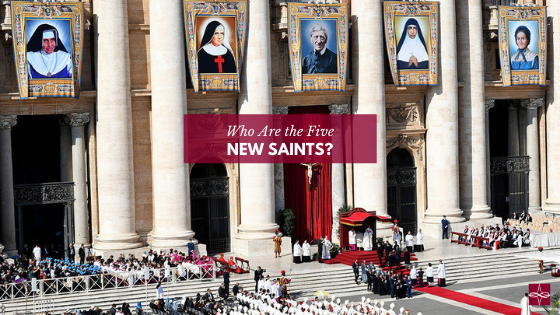





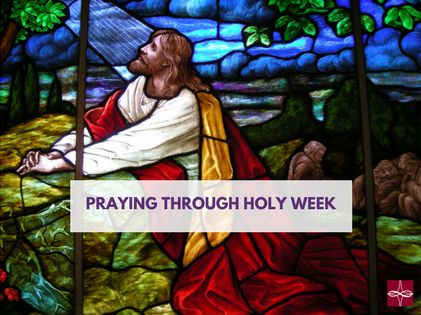

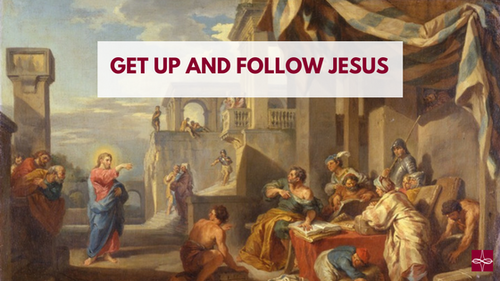



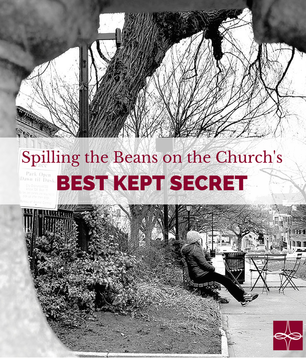

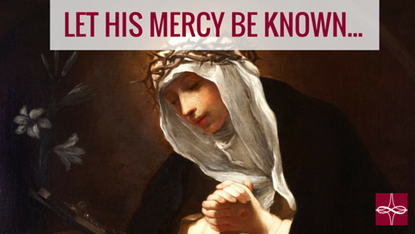



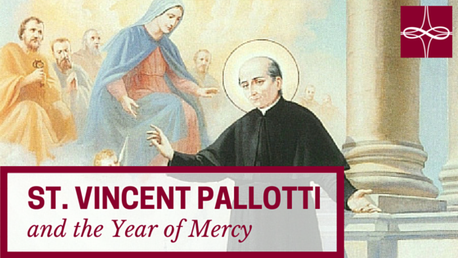



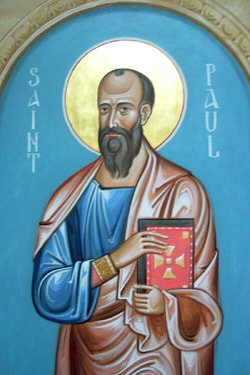
 RSS Feed
RSS Feed